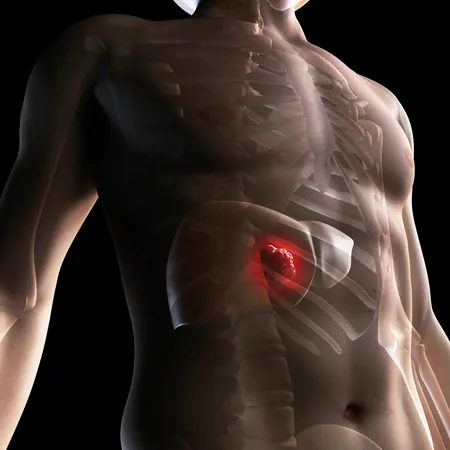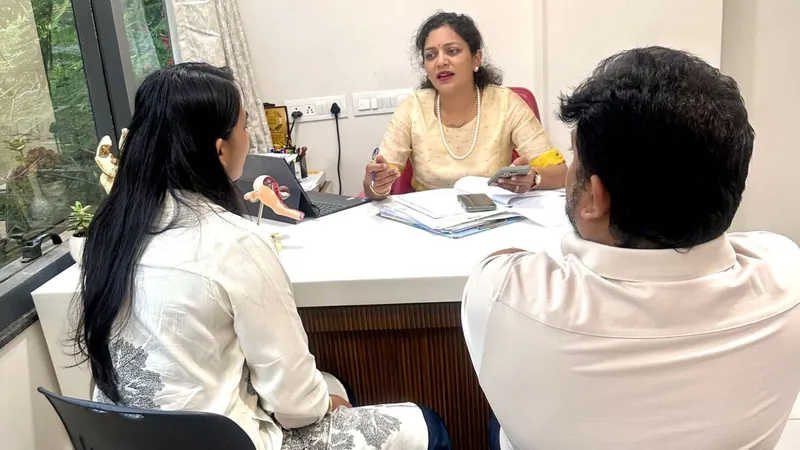
Revolutionary Algorithm May Transform Early Cancer Detection in the U.K.
2025-05-08
Author: Daniel
Groundbreaking Study Utilizes Massive Health Data
Researchers have harnessed the power of over 7.4 million anonymized electronic health records from U.K. adults to develop two cutting-edge algorithms aimed at predicting the likelihood of unsuspected cancer in seemingly healthy patients. This ambitious project, a collaboration between Queen Mary University of London and the University of Oxford, offers a potentially life-saving leap in early cancer detection.
A New Era in Cancer Detection!
The new algorithms promise a much higher sensitivity than existing models, leading experts to believe they could 'revolutionize' cancer detection in primary care settings. This means patients could receive treatment at significantly earlier stages, improving their chances of success.
Expert Insights on the Algorithms
Lead author Julia Hippisley-Cox, MD, a notable Professor of Clinical Epidemiology and Predictive Medicine, emphasized the accessibility of these tools. "Designed to integrate seamlessly into clinical systems, they will enhance routine consultations with GPs, vastly improving early detection rates—crucial for successful treatment outcomes," she stated. With blood test results already available within patient records, the approach is not only effective but also cost-efficient for the National Health Service (NHS), aiming to bolster early diagnostic capabilities by 2028.
Targeting 15 Types of Cancer
The innovative algorithms target 15 different types of cancer, including notoriously difficult cases like liver and oral cancers. They merge a wealth of data, including age, sex, socioeconomic status, lifestyle choices like smoking and drinking, family medical history, and both general and cancer-specific symptoms, providing a comprehensive risk assessment.
Blood Tests as Game Changers
Significantly, the new models incorporate routine blood test results—including full blood counts and liver function tests—turning these common diagnostics into powerful tools for identifying early cancer signs. This advancement stands out compared to the current QCancer algorithms, which often lead to follow-up testing for high-risk patients.
Identifying Hidden Risks
These algorithms delve deeper by recognizing additional medical conditions linked to increased cancer risks, covering not just the liver but also the kidneys and pancreas. They extend insights into familial risk factors concerning lung and blood cancers and highlight new symptoms—like itching and dark urine—that correlate with various cancer types.
Empowering Early Diagnosis for All
Carol Coupland, a senior researcher and Emeritus Professor of Medical Statistics, highlighted the potential of these new algorithms to improve the identification of at-risk individuals. "This groundbreaking tool can empower earlier cancer diagnoses for individuals over 18, including rarer cancer types, ensuring we leave no stone unturned in the fight against cancer," she noted.
A Future of Hope
With such revolutionary advancements on the horizon, this groundbreaking research could pave the way for a future where early cancer diagnosis becomes standard practice, transforming the lives of countless individuals across the U.K. and beyond.



 Brasil (PT)
Brasil (PT)
 Canada (EN)
Canada (EN)
 Chile (ES)
Chile (ES)
 Česko (CS)
Česko (CS)
 대한민국 (KO)
대한민국 (KO)
 España (ES)
España (ES)
 France (FR)
France (FR)
 Hong Kong (EN)
Hong Kong (EN)
 Italia (IT)
Italia (IT)
 日本 (JA)
日本 (JA)
 Magyarország (HU)
Magyarország (HU)
 Norge (NO)
Norge (NO)
 Polska (PL)
Polska (PL)
 Schweiz (DE)
Schweiz (DE)
 Singapore (EN)
Singapore (EN)
 Sverige (SV)
Sverige (SV)
 Suomi (FI)
Suomi (FI)
 Türkiye (TR)
Türkiye (TR)
 الإمارات العربية المتحدة (AR)
الإمارات العربية المتحدة (AR)